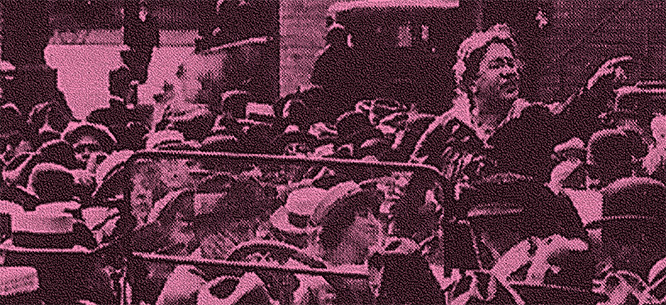Why We Argue
Why We Argue
A left that doesn’t relish arguing with itself is a left that’s not prepared to change the world.

When American leftists disagree with one another, good things can happen. Democratic socialists exposed the lies and brutalities of Stalinists; feminists called out the hypocrisy of radical men who thought only they were born to be leaders; black unionists compelled the labor movement to support civil rights; gay and lesbian activists made homophobes who feared “alienating the working class” look foolish. By arguing, they honed their ideas and learned how to convince others to share them. Of course, good arguments can also descend into sectarian, egotistical squabbles. But a left that doesn’t relish arguing with itself is a left that’s not prepared to change the world. No progress occurs without contention.
The short essays we highlight in this issue demonstrate how vital—and useful—contention can be. Since the onset of the Great Recession, social movements on the left have begun to thrive; whether old or new, they constantly debate how to persuade the unpersuaded and how to defeat the powerful. Like any revival, this one raises difficult questions: how to reform criminal justice? What’s still valuable in Marxism? Should religion mix with politics? What relationship should leftists have with the Democratic Party? Is anarchism the spirit of popular rule or a naïve delusion? How can BlackLivesMatter and LGBT campaigners keep up the momentum and how can reproductive rights activists start moving again? Is a defense of civil liberties the best way to protest the unending “war on terrorism”? Is a left-wing Zionism possible? What strategy should labor follow? Is the left forgetting the primacy of class? Should college be free?
Our authors do not equate contention with combat. On the left, this is not a time for drawing lines in print or pixels between one’s allies and one’s enemies. But it matters a great deal how we speak to other Americans, what demands we make, and how we understand a nation that badly needs to change. And by practicing among ourselves what political theorists call “deliberative democracy,” we may provide a model for how that process ought to work in society as a whole.
In 1968, during another era of big problems and essential arguments, Irving Howe wrote about his fellow New York intellectuals, “they can speak bitterly about each other’s work and opinions…but they are nervously alert to one another’s judgments. Attention is paid—whether from warranted respect or collective vanity or provincial narrowness, it hardly matters.” We belong to a less insular, if still anxious left. But we still disagree, and attention still must be paid.






